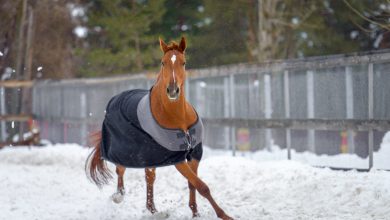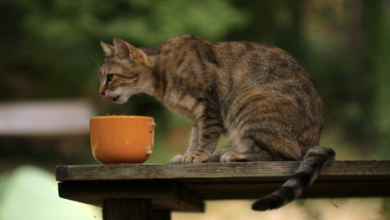7 Tips To Keep Senior Cats Happy & Feeling Young

As cats age, their needs change and their bodies slow down, but their love for family still runs deep. To show love in return, devoted cat parents will do anything to keep their senior cat happy and comfortable. And with some simple adjustments and a little extra time, cat parents can create the purrfect level of comfort for their aging cat.
By the time cats reach senior status at 11 years of age, they’re more than likely to suffer from arthritis. In fact, 90% of senior cats suffer from a degenerative joint disease with pain in at least one joint. And roughly one-third of cats have one or more chronic illnesses or disabilities. At 15+ years, felines are labeled as super-seniors or geriatric and these percentages rise.
No matter their age, our cats are forever our sweet babies and in need of TLC. But age demands extra comfort, so check out these 7 tips to keep your senior cat happy.
1. Lots of Comfortable Beds for Snoozy Senior Cats
Cats of any age love to sleep. In fact, felines sleep an average of 12 – 16 hours a day. But, as kitties age, they like to nap even more. Senior cats might sleep up to 20 hours a day. Help an older cat get super comfy by offering extra places to snooze.

@willie_and_teddy/Instagram
Afflictions like arthritis, joint pain, and stiffness can make older cat bodies uncomfortable. Be sure their chosen perches are cushioned because stretching out on hard surfaces can hurt, arthritis or no.
One of the easiest tricks to keeping a senior cat happy is offering prime sleeping spots. Your elderly cat will thank you with lots of snuggles and purrs. If you’re a crafty cat lover, check out The Meow Place for DIY cat beds.
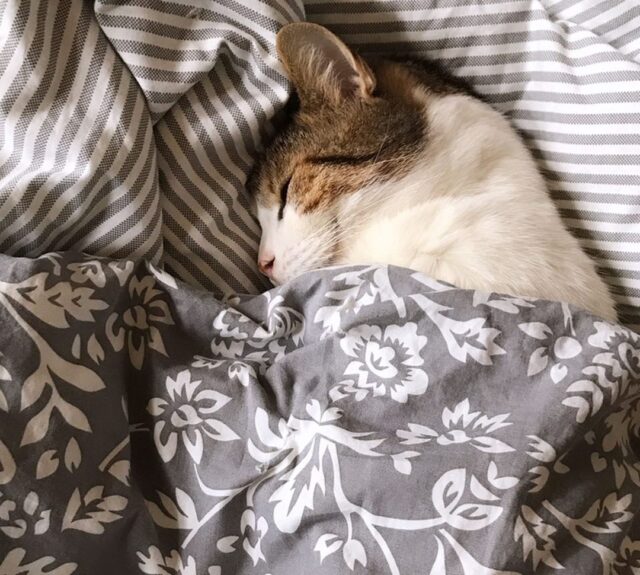
@mokkamalna/Instagram
2. Stairs and Ramps for Aging Explorers
Driven by a nosy desire to explore, cats love to jump on any surface where curiosities lie, waiting to be discovered. Climbing is also fun for kitties because they are indeed wild things who must know every aspect of their stomping ground. But as cats age, jumping and climbing can get tougher while curiosity remains strong.
And let’s face it, stopping cats from jumping and climbing is much like wrangling eels!
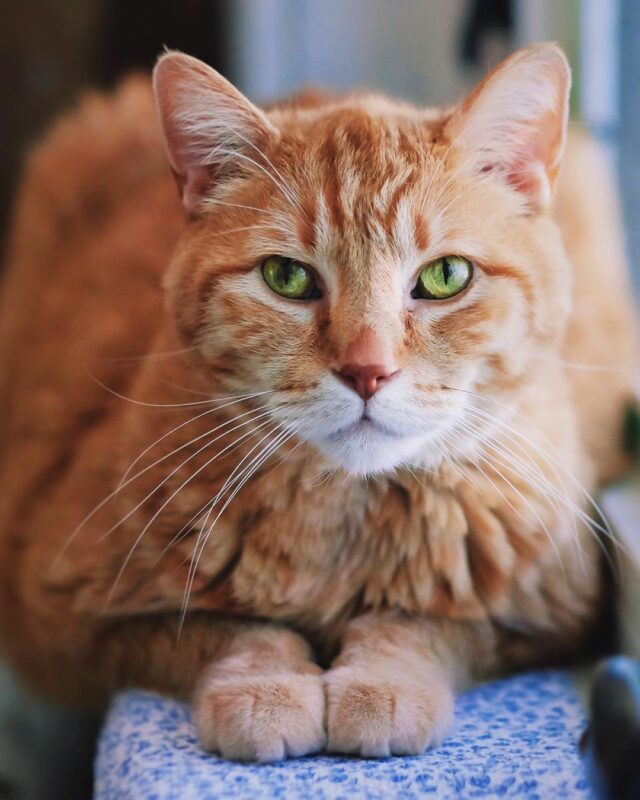
@wellettas/Instagram
Older cats trying to make distances they could once jump can lead to falls and injury. Help your whiskered explorer stay safe by adding new implements that aide mobility.
Rather than fight your older kitty for attempting to jump on the couch or the bed as he’s always done, place a step stool beside it to shorten the distance he has to cover. Sets of portable steps are good for this too. As are ramps.

@princechub/Instagram
For cats who enjoy climbing, wall ledges are good options for elderly cats who refuse to stay on the floor. With the ledges, cats can make small hops to arrive at their preferred higher destination.
3. Different Diets for Senior Cat Tummies
Tastes and nutritional needs change as cats move into the elder stages of life. While young felines need to pack away certain nutrients to help them grow and develop, elderly cats have different nutritional requirements as activity levels wane and metabolism rates drop. It was once thought senior cats need less protein, but this theory was proven false in the 1990s by veterinary nutritionist, Dr. Delmar Finco. His research proved aging animals actually require more protein.
Beyond protein-rich, low-grain diets, senior cats often have medical issues that require specialized food. Cats with dental problems are pained by crunching up hard kibbles and can only eat wet food. Certain additives can upset sensitive stomachs meaning some cats can only consume limited ingredient foods. Food can become a tricky thing as cats age, but you can help keep your senior cat happy and feeling pawsome by choosing what’s just right for your fur baby.
Related: View Our Guide To the Top Senior Cat Foods
Older cats not eating is a common concern for cat parents and if trying different food options doesn’t work, maybe it’s time for a trip to the vet to see what’s going on.
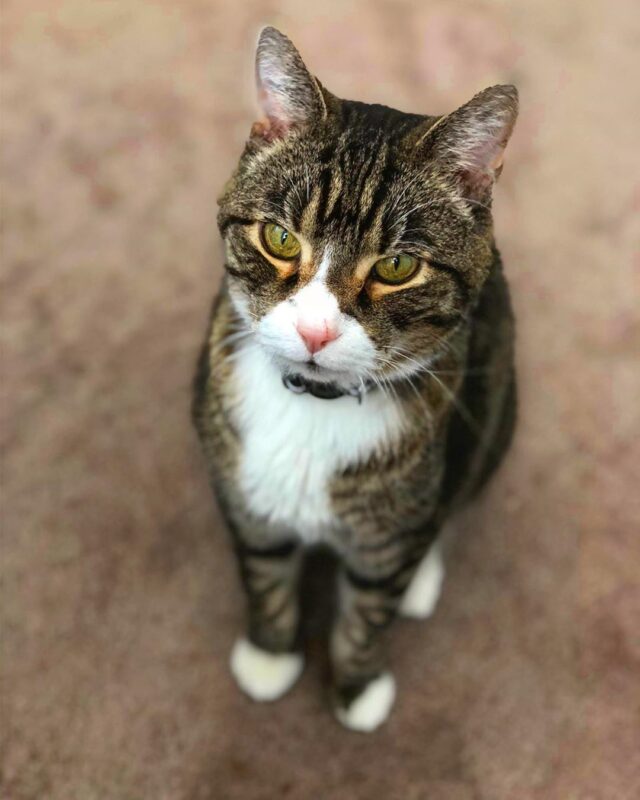
@derpndrizzt/Instagram
A Note on Senior Cat Water Intake
Moisture is so important for senior cat diets. Help an arthritic cat easily sip water by raising his dish as crouching low to drink can be uncomfortable on stiff and painful joints. And as cats lose visual acuity due to aging or medical issues, seeing the flat water in a bowl can be difficult. Cat fountains draw a cat’s attention with moving water and offer a source of entertainment as well.
4. Activity Keeps Senior Cats Moving
According to Cherry Hill Animal Hospital, “Cat obesity is important to address, and quickly, as it is associated with real risks. Obese cats are at a greater risk for many diseases like diabetes, liver disease, arthritis, urinary problems, lameness, pancreatitis and GI diseases of all types, and skin problems such as dandruff. Fat cats also experience a decreased quality of life and even an increased possibility of cancer.”
Playtime
While senior cats are definitely slower than their younger selves, they still need activity. Exercise is good for everybody, at every age. Keeping your cat active as she ages does her a huge favor. The healthier she is, hopefully, the healthier she’ll stay.

@sophtfocus/Instagram
Silly play may seem like a young feline’s game, but senior cats enjoy a game of grab and catch too. After all, senior or kitten, cats are born hunters and play hones their abilities. Fun time does change with age though. Kittens will haul their tails across a room to catch a toy, but older cats usually keep their silliness in one spot. Keep this in mind while enticing your cat with wand-style toys that encourage a kitty to roll, bat, and kick with hindfeet. Be sure to keep playtime in short duration though because elderly cats tire easily.
Scratching Posts
Older cats use vertical scratching posts less than their younger counterparts, but their little paws still seek places to scratch. Give older cats scratchers in vertical positions or on an incline to make this natural need a comfortable experience for aging kitties.
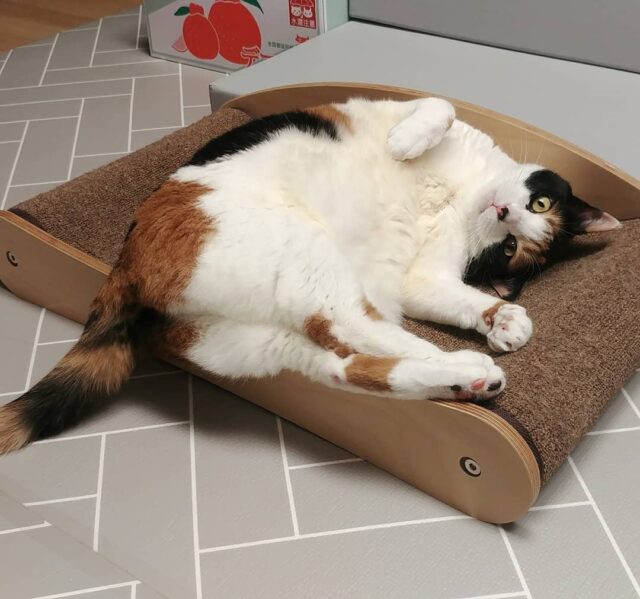
@cat4_dog1/Instagram
Keeping your senior cat active will also combat weight gain. Obesity can worsen joint pain and complicate health conditions. And if these problems don’t already exist, older fat cats are certainly at a higher risk for developing health issues.
5. Regular Nail Trimming for Aging Toe Beans
As cats age, they develop aggravations in their paws just as humans do in their hands and feet. Be it arthritis or just fatigue from being older, senior cats lose some of the flexibility in their toes. This means they can’t retract claws as well, which leads to snagging in soft surfaces. Getting hung and being unable to retract a claw could lead to injury for a caught cat.
And, senior cats tend to be lazy and their claws don’t get the natural grinding they did in kitty’s younger days. When claws grow unchecked, they can grow into paw pads or easily break off. Either of these problems can cause injury and infection in precious paws.
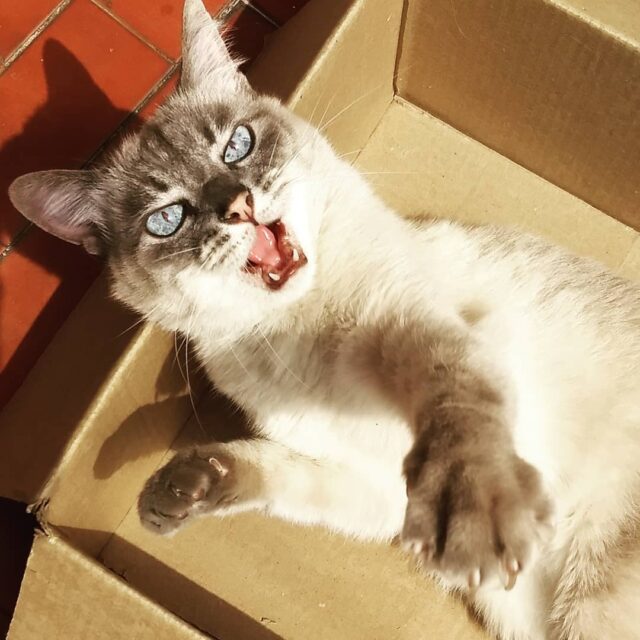
@claudiapdaffonso/Instagram
For information on how to trim your cat’s nails, check out Washington State University’s detailed instructions for clipping cat claws.
A warning: If you feel any kind of nervous about cutting your cat’s nails on your own, make an appointment with the vet’s office for a trim. Your cat will know you’re nervous and pick up on it. If everybody is uncomfortable, the experience might not go well and this is certainly not your aim. You and your cat should feel at ease while trying to avoid senior cat snag.
6. Senior Cat Treats for Limber Bodies
Arthritis can cause pain and stiffness in old kitty bones, but treats with fish oil can help ease discomfort while making your senior cat happy to have a tasty snack.
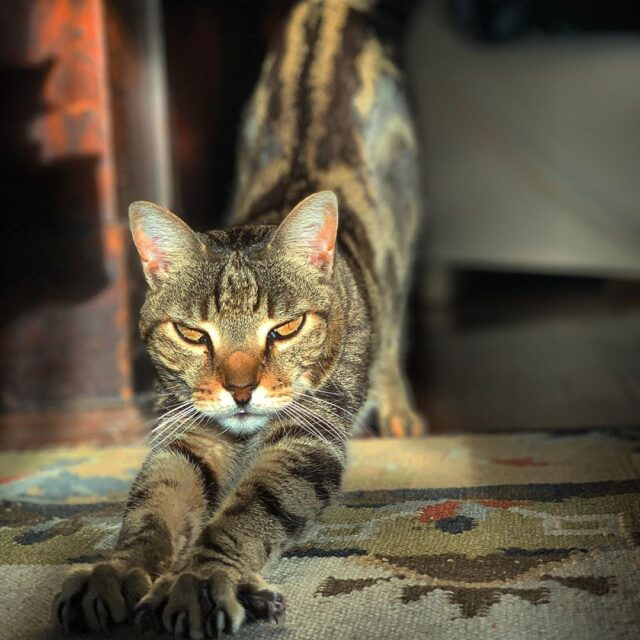
@bethlikespancakes/Instagram
Dr. Jennifer Coates reports fish oil “is probably the most important dietary supplement for cats with arthritis” and provides an ideal source of omega 3 fatty acids.
“Several studies have shown that arthritic cats fed high doses of omega 3 fatty acids tend have less lameness and be more active than do cats who did not receive the supplements,” writes Dr. Coates.
Senior cat supplements are available across the market, but different cats have different needs, so ask your vet which ones are right for your kitty dear.
7. Increased Veterinary Care Keeps Older Cats Healthy
Cats don’t particularly enjoy trips to the vet, but as kitties mature, they require more care. Like humans, age brings a host of conditions that need to be monitored or requires prescriptions to maintain wellbeing. If your cat requires medication, be sure dosing remains on a regular and uninterrupted schedule to keep your senior cat happy and healthy.
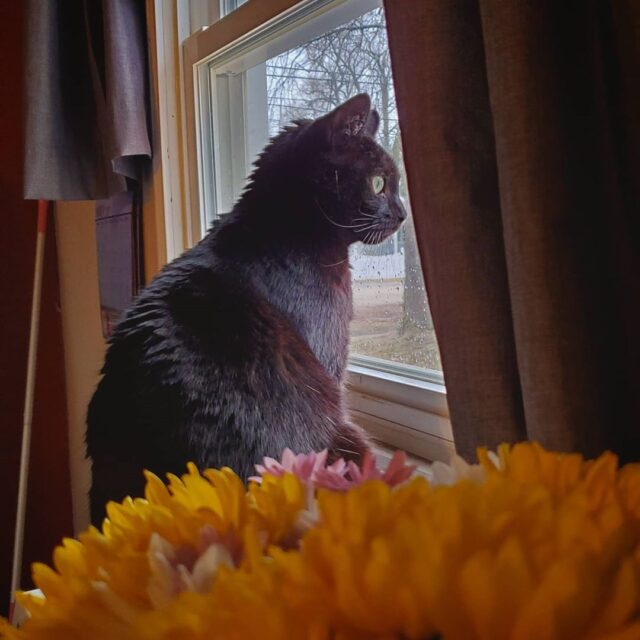
@shadowseven_7/Instagram
8. Don’t Forget Snuggles for the Senior Cat
By the time a cat reaches senior status, they’ve been part of the family a long time and those paw prints have left deep imprints on the heart. As a devoted cat parent, you’d do anything to keep your senior cat happy and these comfort tips are just a part of healthy living. Love and snuggles are the most important comfort you can give your older cat.
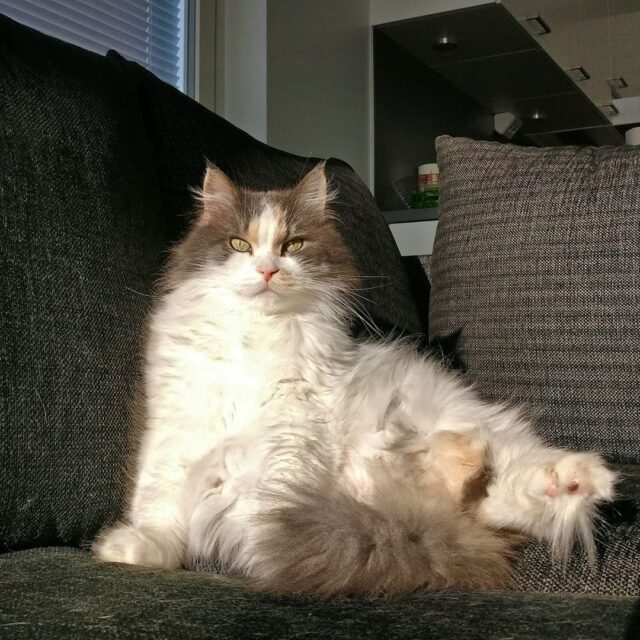
@the_three_musketeers_fin/Instagram
For all cats give us, offering them a little extra TLC as they age is the least we can offer in return!
Feature Images: @wellettas/Instagram & @the_three_musketeers_fin/Instagram
